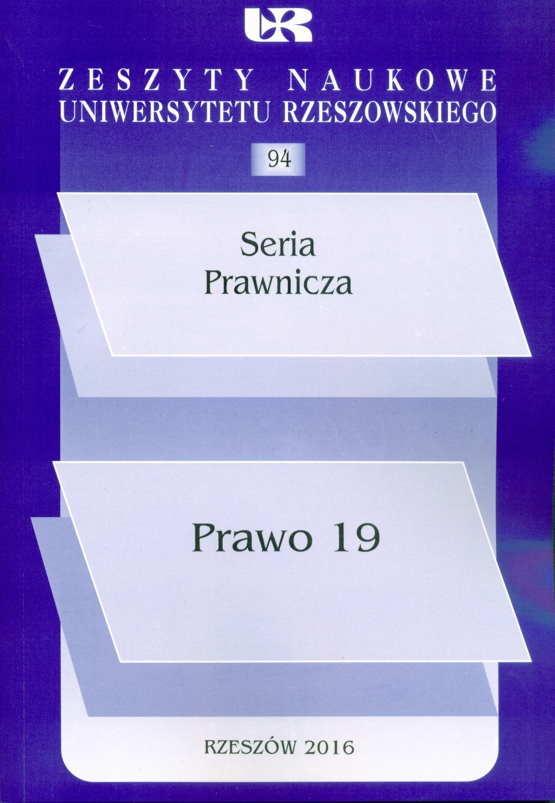The application of action de peculio due to filiae familias in the principate period
DOI:
https://doi.org/10.15584/znurprawo.2016.19.2Keywords:
actio de peculio, daugther under patria potestas, peculio property, actio rerum amotarum, principate, complaint, praetorian lawAbstract
The application of actio de peculio due to filiae familias – in the principate period – is not an often discussed topic in literature. This claim was one of additional actions, the aim of which was to include the family superiors and owners of slaves in the responsibility for contractual obligations. Not only in Gaius Institutions (G.4,69–4,77), but also in the formula of the claim of the reconstruction of the praetorian edict written by. O Lenel, no feminine persons are included. However, it arises from other sources that this action could have been applied due to business activity of daughters, which was performed on the basis of “peculium”. “Actio de peculio” – in reference to a married daughter being a subordinate of the father – also had another function; it was the equivalent of “actio rerum amotarum”.
Downloads
Downloads
Published
How to Cite
Issue
Section
License
Copyright (c) 2016 Acta Iuridica Resoviensia

This work is licensed under a Creative Commons Attribution-NonCommercial-NoDerivatives 4.0 International License.

